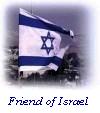Plus Ca Change...Arab Christians and Nostra Aetate
And fourthly I come to Nostra Aetate, the briefest of all the council declarations but in my eyes one of the most, if not the most, important. This declaration on the relationship of the Church to non-Christian religions underlines that the Church “rejects nothing of what is true and holy” in other religions and stresses the importance of dialogue. The last three pages of Nostra Aetate, which concern the Church’s relations to Judaism, was one of the most disputed.
This briefest of declarations owes its existence to three people without whose determination, dedication and patience it would never have come about. They were Pope John himself, Cardinal Bea and Fr Johannes Österreicher, an Austrian priest and convert from Judaism who had fled from Austria to the United States before the Second World War. John XXIII was determined to put an end to accusations that the Church was anti-Semitic. He had done a great deal to help Jews when he was Apostolic Delegate in Istanbul in the Forties. Shortly after his election, he asked Cardinal Bea to consider how the Jewish question could be incorporated into the council. I was invited to join this small circle early on, and thus experienced at close hand the many crises and continual ups and downs the declaration went through. It is indeed almost a miracle that it was ever passed at all.
Rumours that a declaration on the Jewish question was on the agenda began circulating almost as soon as the council opened. The mere fact that the question was to be discussed at all immediately met with violent opposition from the Arab world, the Eastern Churches and from a small but vociferous conservative group of council bishops around Archbishop Lefebvre. I greatly admire Pope John, Cardinal Bea and Fr Österreicher for persevering despite fierce opposition, intrigue and sometimes outright slander.
Right up to the end of the council this opposition mobilised the mass media and evoked diplomatic protests from the Arab states. [really, you do surprise me! - Ed] I received sacks of letters, many of them from Christians in the Middle East, begging me to prevent a declaration on the Jewish question. Some of the pamphlets that were circulated were positively malicious and defamatory [surely no Middle Eastern Christian would stoop to that sort of thing! - Ed]. When the small group of council bishops which was so against any declaration on the subject saw that they could not prevent it, they tried to water it down and continually lodged complaints so that the drafts had to be changed at least three or four times. Finally, however, on 28 October 1965, Nostra Aetate was passed: there were 2,221 votes in favour, 88 against and three abstentions. It had taken four years to reach agreement on a few hundred words! For Karl Rahner, “the wording and inner dynamism” of Nostra Aetate was “unique”.



0 Comments:
Post a Comment
<< Home